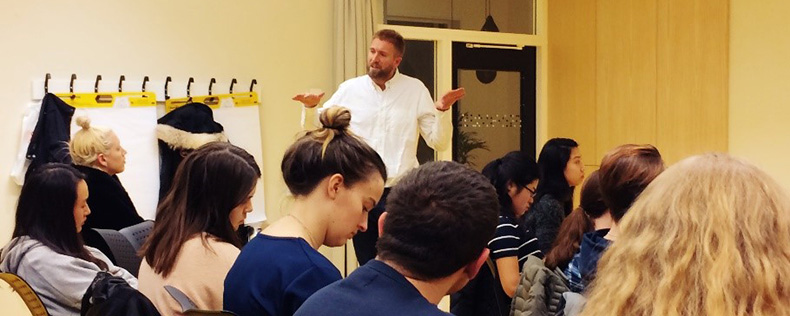Sallin presented his studies on Resignation Syndrome (RS). According to an early description, the patients are “totally passive, immobile, and lack tones, are withdrawn, mute, unable to eat and drink, incontinent and not reactive to physical stimuli or pain.” Even though these symptoms are comparable to apathy or other well-known stress-related diseases, RS was not an officially recognized diseased before 2014. Since then, just over 1,000 cases have been documented.
What makes RS so remarkable is that it seems to be a unique phenomenon happening in Sweden. Further, patients are almost exclusively young refugees from the Middle East and Central Asia that fled to Europe. Like apathy, RS is likely to result from stress and trauma. The long asylum processes for refugees in Sweden may therefore explain why RS only occurs here. Elsewhere in Europe, similar diseases have been registered, but scientists are unsure whether these are variations of RS, or completely different diseases.
In his study, Sallin analyzed the relationship between RS and culture, by framing it in a neurobiological predictive coding model. Patients may neurotically signal distress in a way that is appropriated and recognized by their respective cultures. Therefore, Sallin’s work connects the fields of the neuroscience and philosophy of consciousness to immigration policy.
DIS students in the Public Health Program analyze both the challenges and opportunities that migration presents to the Swedish healthcare system. The Core Course, Public Health and Migration, focuses specifically on refugees and asylum seekers, making Sallin’s study of high relevance and interest to these students.
Sallin concluded his presentation with a question round. Students asked if he recollected any specific examples of RS patients. He mentioned a Russian refugee who – after finishing treatment – suddenly knew how to speak Swedish without having any knowledge of the language before being diagnosed. Sallin was also asked to reflect more on migrant and refugee policies’ causal effects on the prevalence of RS, to which he responded that it is difficult to pinpoint causality and that more research is needed to truly establish this connection. Overall, it was great to see the students and speaker interact so much and everyone certainly had a lot to reflect on.
Interested in the Public Health Program at DIS Stockholm? Find more information:
Back to all news